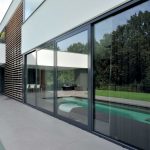The history of PVCu (or is it uPVC)?
July 2, 2021
Achieving life-like timber aesthetics with ease and a proven green building material, over the last 50 years PVCu home improvement products have come a long way – probably further than anyone could have imagined!
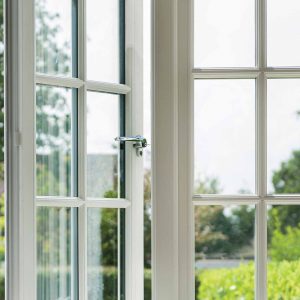
To give you an idea of how Britain’s most popular window material has progressed, and show off your expertise to future customers, we’ve put together a brief history of PVCu for you.
-
1838
French chemist and physicist Henri Victor Regnault discovers PVC for the first time, after leaving a flask of vinyl chloride gas in daylight. Over time it had transformed into a hard white substance, but Regnault didn’t patent it as he couldn’t find a practical use for it.
During this time in Britain, large ‘Georgian style’ timber windows with astragal bars and even larger ‘Victorian-style’ timber windows with fewer astragals were the norm.
-
1872
German chemist Eugen Baumann accidentally discovers PVC for the second time, but doesn’t know what to do with it either!
-
1913
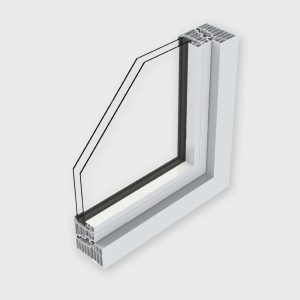
German chemist Friedrich Klatte realises the potential of PVC and patents it. But due to its hard, brittle, and inflexible nature, he’s unable able to find a viable commercial use for it.
-
1926
American inventor Waldo Semon and the B.F. Goodrich Company finally develop a method to plasticise PVC by blending it with a range of additives, making it much more flexible and easier to process.
-
1935
uPVC (Unplasticized Polyvinyl Chloride) is manufactured for the first time, referred to as ‘unplasticized’ as no chemicals are added for softening.
-
1959
The first commercially available PVCu windows are installed in Germany.
-
Late 1970s
Germany introduces PVCu window systems to the UK glazing industry. Originally designed for tilt & turn windows, the first German window profiles were much thicker than the slender timber casement windows they replaced. Thankfully, the UK glazing market excelled at developing slimmer window profiles specifically designed for British architecture as well as hitting the latest efficiency and security performance targets.
NOTE: The term PVCu is used to align with European standards, as most languages pronounce the PVC before the U. The term uPVC was commonly used in the UK before the European changes, which is why both terms are used interchangeably but mean the same thing.
-
The 1980s
uPVC windows and doors really take off in Britain, by the mid-1980s uPVC accounts for 75% of the 12 million windows sold to British homeowners each year.
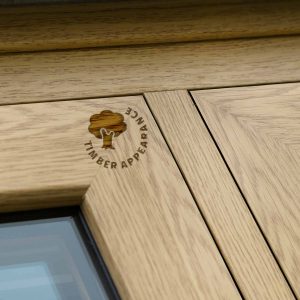
-
2000
Internally glazed uPVC windows with better security options and softer frame shapes become available.
Thanks to developments in the manufacturing of uPVC, uPVC becomes widely recognised as a sustainable construction material.
-
2010
The uPVC window and door manufacturing revolution begins! Exciting advances in extrusion technology empowers the UK glazing industry to match traditional window styles even closer, with shaped and sculptured beads, decorative sliding sash horns, life-like woodgrains, elegant flush finishes, timber effect corner joints, and more enduring colour choices entering mainstream markets – giving house builders, architects, trade suppliers, installers, and homeowners limitless design opportunities.
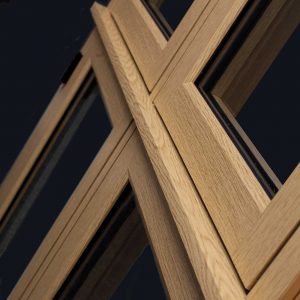
-
2011
Residence 9 timber effect windows extract the key principles, shapes, and dimensions from the restrictive Article 4 Conservation Area guidelines for windows. So aesthetically authentic, they are regularly accepted for use in conservation areas for timber window replacements. Its innovative 9-chamber profile can achieve outstanding energy ratings of A+ and accommodate triple glazing with ease.
-
2016
Residence 7 windows and Residence² windows enter the market, delivering a sleek flush appearance on both sides (R7) or a contemporary flush casement exterior with square interior detail (R²).
Have a ‘Dekko’ at our industry-leading uPVC windows & doors
Specialising in premium uPVC home improvement products, over the last 13 years Dekko has become one of the UK’s leading suppliers and manufacturers of high-quality fenestration products. Experts in PVCu product fabrication, at Dekko, we also manufacture an extensive range of high performance aluminium and composite products.
Work with one of the UK’s most reliable trade suppliers by contacting us today.










Nationwide delivery in the UK
From our state-of-the-art factory in Lancashire, our products are transported to installers across the UK. We strive to meet all delivery deadlines to ensure our customers are never delayed. They stock an extensive range of PVCu and ancillary products to give installers easy and convenient access to all the necessary hardware.
Contact Us
